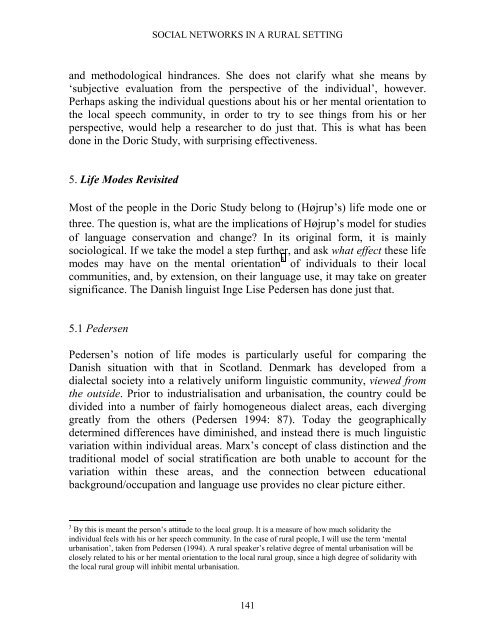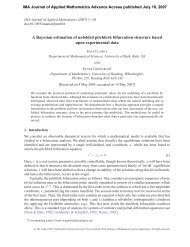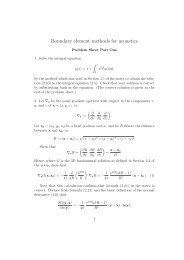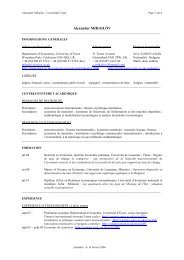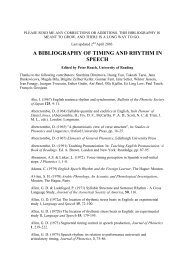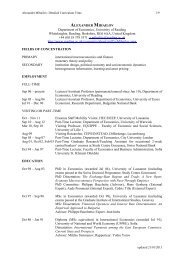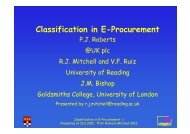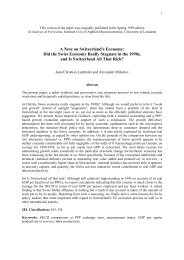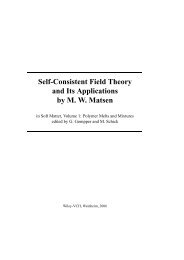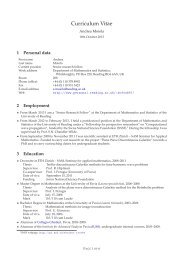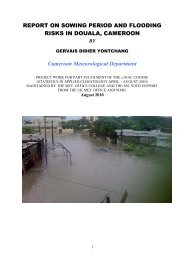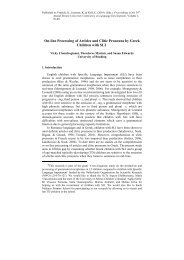Reading Working Papers in Linguistics 4 (2000) - The University of ...
Reading Working Papers in Linguistics 4 (2000) - The University of ...
Reading Working Papers in Linguistics 4 (2000) - The University of ...
Create successful ePaper yourself
Turn your PDF publications into a flip-book with our unique Google optimized e-Paper software.
SOCIAL NETWORKS IN A RURAL SETTING<br />
and methodological h<strong>in</strong>drances. She does not clarify what she means by<br />
‘subjective evaluation from the perspective <strong>of</strong> the <strong>in</strong>dividual’, however.<br />
Perhaps ask<strong>in</strong>g the <strong>in</strong>dividual questions about his or her mental orientation to<br />
the local speech community, <strong>in</strong> order to try to see th<strong>in</strong>gs from his or her<br />
perspective, would help a researcher to do just that. This is what has been<br />
done <strong>in</strong> the Doric Study, with surpris<strong>in</strong>g effectiveness.<br />
5. Life Modes Revisited<br />
Most <strong>of</strong> the people <strong>in</strong> the Doric Study belong to (Højrup’s) life mode one or<br />
three. <strong>The</strong> question is, what are the implications <strong>of</strong> Højrup’s model for studies<br />
<strong>of</strong> language conservation and change? In its orig<strong>in</strong>al form, it is ma<strong>in</strong>ly<br />
sociological. If we take the model a step further, and ask what effect these life<br />
modes may have on the mental orientation 3 <strong>of</strong> <strong>in</strong>dividuals to their local<br />
communities, and, by extension, on their language use, it may take on greater<br />
significance. <strong>The</strong> Danish l<strong>in</strong>guist Inge Lise Pedersen has done just that.<br />
5.1 Pedersen<br />
Pedersen’s notion <strong>of</strong> life modes is particularly useful for compar<strong>in</strong>g the<br />
Danish situation with that <strong>in</strong> Scotland. Denmark has developed from a<br />
dialectal society <strong>in</strong>to a relatively uniform l<strong>in</strong>guistic community, viewed from<br />
the outside. Prior to <strong>in</strong>dustrialisation and urbanisation, the country could be<br />
divided <strong>in</strong>to a number <strong>of</strong> fairly homogeneous dialect areas, each diverg<strong>in</strong>g<br />
greatly from the others (Pedersen 1994: 87). Today the geographically<br />
determ<strong>in</strong>ed differences have dim<strong>in</strong>ished, and <strong>in</strong>stead there is much l<strong>in</strong>guistic<br />
variation with<strong>in</strong> <strong>in</strong>dividual areas. Marx’s concept <strong>of</strong> class dist<strong>in</strong>ction and the<br />
traditional model <strong>of</strong> social stratification are both unable to account for the<br />
variation with<strong>in</strong> these areas, and the connection between educational<br />
background/occupation and language use provides no clear picture either.<br />
3 By this is meant the person’s attitude to the local group. It is a measure <strong>of</strong> how much solidarity the<br />
<strong>in</strong>dividual feels with his or her speech community. In the case <strong>of</strong> rural people, I will use the term ‘mental<br />
urbanisation’, taken from Pedersen (1994). A rural speaker’s relative degree <strong>of</strong> mental urbanisation will be<br />
closely related to his or her mental orientation to the local rural group, s<strong>in</strong>ce a high degree <strong>of</strong> solidarity with<br />
the local rural group will <strong>in</strong>hibit mental urbanisation.<br />
141


